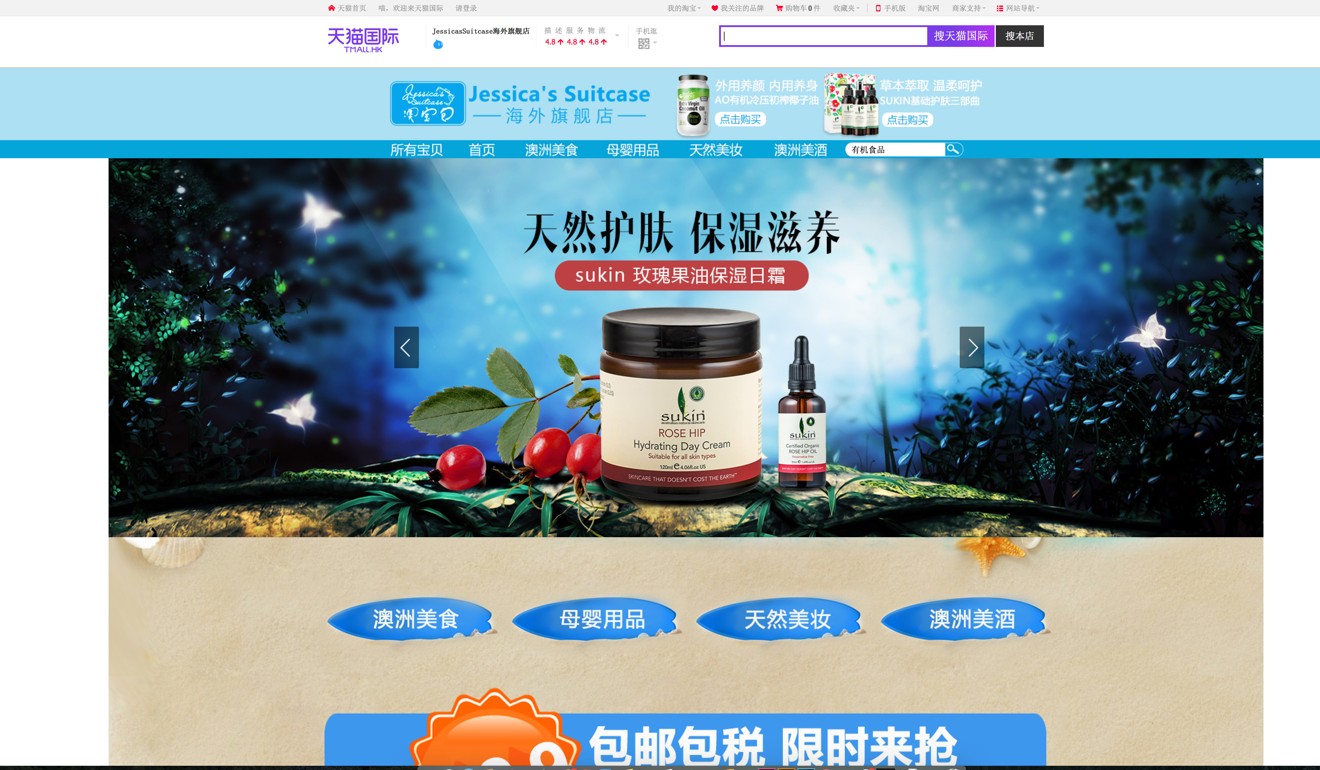
The non-Chinese cashing in on Australia’s booming daigou business
It’s not only Chinese profiting from their compatriots’ demand for overseas products – just ask Jessica Rudd, the daughter of the former Australian prime minister, Kevin
While most daigou are overseas Chinese students or housewives buying products on a small scale for family and friends, there are also some non-Chinese people getting on board the booming industry.
The most high-profile of these is Jessica Rudd, the daughter of former Australian prime minister Kevin Rudd, who sells organic infant products to middle-class Chinese families over retail platforms like Tmall and Taobao and is a vocal proponent of daigouselling. She runs a site called Jessica’s Suitcase – a reference to another term for daigou selling, the “suitcase trade”.
And she is far from alone. Oliver, a New Zealander who preferred not to give his last name as he has another job, runs an online retail site through Taobao from his home in Auckland, selling health care products, skin care products, honey, milk powder and pet food.
Sing! China hits the right note for soft power in Singapore
“Being a Kiwi selling on Taobao is definitely a challenge but it’s also my main selling point,” he said. “My customers are really interested about the New Zealand lifestyle and products.”
Oliver returned to Auckland in January after studying at Peking University, where he developed the habit of stuffing his suitcases with Australian and New Zealand products for his Chinese friends whenever he took a trip home.

His store page includes a description of his background in a cute Chinese font, including a line saying “I love to travel and learn about new cultures”, and features pictures of him playing with a dog, and holding various products in front of New Zealand scenery.
“Put it this way, it’s worth my while for the amount of time that I put in, but I’m definitely not getting rich from this,” he said. “The margins are relatively small.”
But he’s not worried about bigger daigou stealing his business – instead he’s focused on taking away their customers.
How the Venetian made Macau great again
“I offer a more specialised service,” Oliver said, adding that he translated ingredients and packaging into Chinese, explained how to use certain products, and would even contact manufacturers with any questions his customers wanted to ask.
“I always make sure that I know some people in New Zealand that have used it before I market it, so I at least know that it’s a legit product and that it actually works.”
There’s another benefit: it’s a good way for him to make sure he doesn’t forget the Putonghua he learnt while living in China. ■

